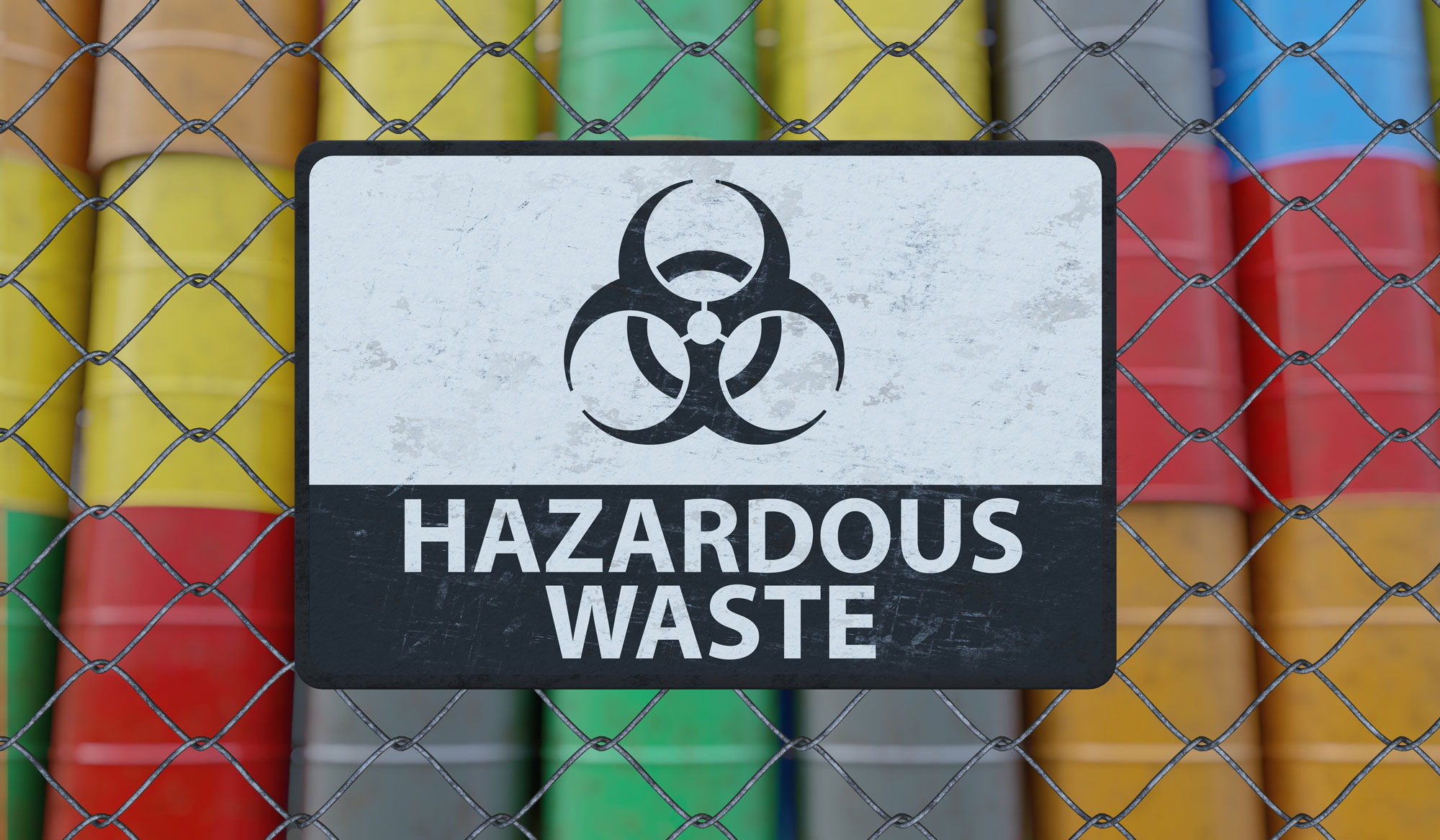
What Is Hazardous Waste?
Hazardous waste can be a liquid, solid, or sludge that is a by-product of a manufacturing process. It can also be a commercial product like industrial solvents or pharmaceticals that are discarded. Under the law, a waste is hazardous and must be treated specially if the Environmental Protection Agency lists the waste as being hazardous or if the waste demonstrates that is has any of the following characteristics:
Ignitable: A waste that is flammable (has a flash point under 140 degrees Fahrenheit) such as solvents, paints or cleaning products.
Corrosive: Wastes that are acids or alkaline that can burn human tissue or corrode metal.
Reactive: A broad range of wastes that are unstable, explosive or can create toxic fumes.
Toxic: Wastes that contain certain hazardous chemicals above regulatory thresholds. Of the thousands of toxic chemicals in commerce, EPA has listed only 40 as having toxic characteristics.
